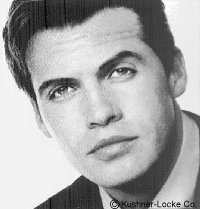





I would like to take this opportunity to welcome all incoming students to the Miskatonic University
at Sunnydale. The upcoming academic year promises to be an exciting and innovative one for MUS
and will surely give all of our students the most unheard of possibilities available in the transmundane.
I would like at this time to draw upon the brilliant 1998 Anthony Iommi Lecture given by our own
Herr Doktor Party Kalway to give students a glimpse of what perils and pleasures await them in our
hallowed halls.
-- A. DuLac
The following is an abridged selection from the 1998
Anthony Iommi Lecture in Black Sabbath Studies
Yanni Hall
Sunnydale Campus of the Miskatonic University
Sept 16, 1998, 8:30pm
Delivered by Prof P. Kalway of the Faculty of Reality
Honourable Chancellor, Most Dread Faculty, and Distinguished Guests,
returning students and staff, please join me in giving a warm
Miskatonic welcome to all those unfamiliar faces in the audience: our
new class of 2002 in the Faculties of Arts and Martial Science. As I'm
sure President DuLac has already communicated far more eloquently than
I can during his annual Address to the Incoming Class, what you are
about to undertake here at MU Sunnydale is nothing less than a journey
to the centre of time. For many of you, time and Reality have been
until now confused as two parts of one whole. As you progress in your
studies here in sunny Sunnydale, previously unthought vistas of
knowledge and space will present themselves to you in forms myriad and
awesome. Be afraid. Such dread knowledges are the province of an
infernal few, and a lack of respect and terror presages only the most
horrible of fates. Which brings me to the thesis of my lecture today.
Although many books have been written, courses taught, dissertations
presented, and souls lost in the study of the writings of J. Oswald
Osbourne, what I am about to present to you today is of such majestic
import that it is only in the basalt halls which memorialize Yanni
that I dare with clear consciences.
In his seminal study of the later works of Black Sabbath, Professor
and Rear Admiral J.L. Ahad made concrete the progression from
transmitter of secret knowledges to horror-adled invalid experienced
by the composer of our subject today. The different metres, the
fluctuating symbolism, the shifting logics and counterpoint found in
Sabotage and Never Say Die clearly, or as clearly as we may safely
assume in our field, indicate a categorical shift in [per]ceptions and
coherence webs/rafts as communicated to us by Ozzy and his erstwhile
confreres. Let me begin by quoting from a brief section from "Johnny
Blade."
Well you know that Johnny's a spider
and the city at night is his web...
...He's the one that should be afraid
What will happen to you Johhny Blade?
Clearly, the shift in time signature, as well as the obvious changes
in tone(both musical and metaphorical) and colour suggest some
proto-textual analysis is warranted.
In 1584, we know from recently recovered logs of diamond merchants in
what is now Belgium, great attention was being distracted from
commerce by a hideoulsy and rightly un-nameable(then!) creature well
known to us today as the Onesche. At the time considered a loathsome
but perhpas legitimate house, the VanBeigh's and their cousins(so the
16th century scribes thought, we know today obviously of their
one-and-the-sameness) in France, the DeLaBonsches, were at the peak of
their recognized temporal(I mean that as opposed to spiritual, not in
the metaphysical sense) power. Scholarship at MU Belleville and
elsewhere has linked 16th and 17th century poetry, most famously
"MiBeau Wood" , "Les Diables Fecales et gastronomiques" and "Canto di
Bonesse" with this trend in both Northern and Mediterreanean Europe.
Once the VanBeighs were expelled to North America by both papal
dictate and civil and royal order in all the major powers of the time,
poetry and prose of the various relevant authors fell into a quick and
complete decline. Who, for instance, has or would want to read the
later works of Antonius Geurrerresse with any more than casual
interest? The dismissal of the Onesche from Europe prompted a welcome
change in the lyric arts.
Back to our century....